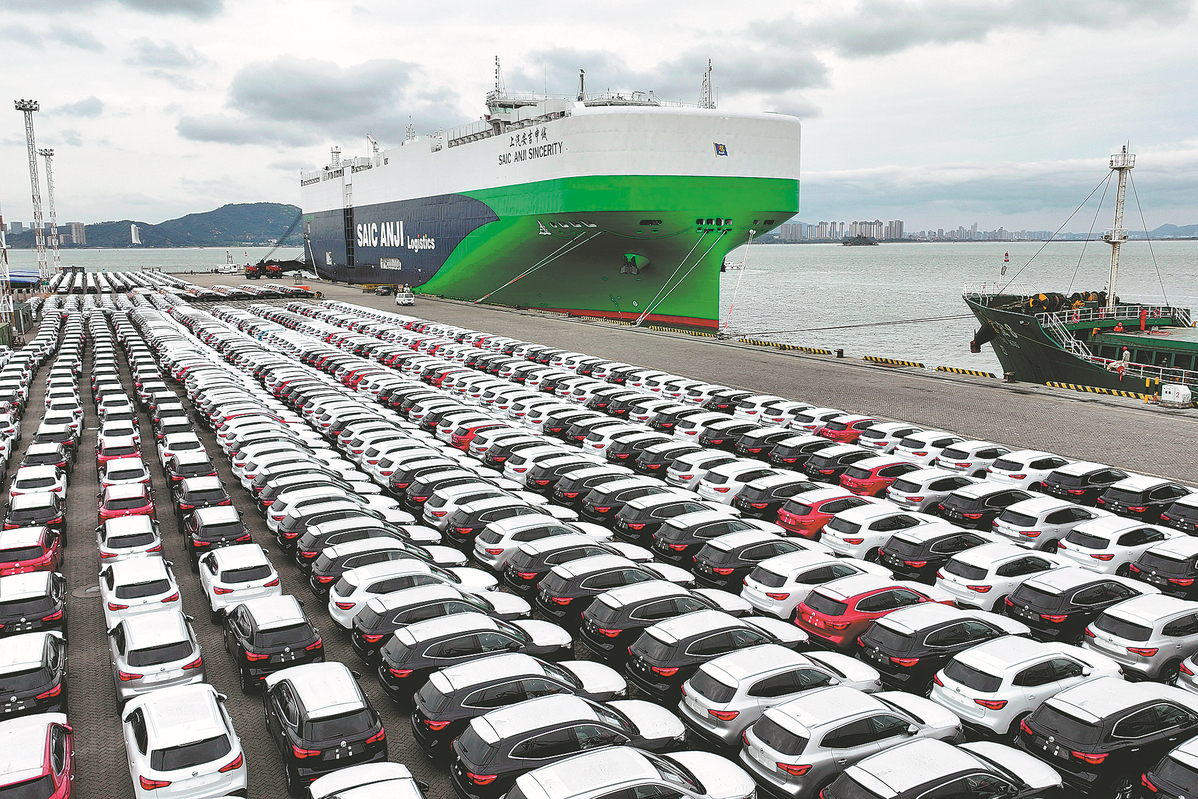Commission's wrong, unreasonable and noncompliant?move not good for EU: China Daily editorial


The Chinese Commerce Ministry has denounced the European Commission for engaging in "unfair competition" under the guise of "fair competition", saying that it will take all necessary measures to defend the legitimate rights and interests of Chinese enterprises after the commission announced additional tariffs on Chinese electric vehicles.
Despite months of intensive negotiations with the Chinese side, the European Commission announced additional tariffs ranging from 17 percent to 36.3 percent on Chinese-made electric vehicles on Monday. The rate depends on the commission's judgment of how cooperative the various Chinese manufacturers were with the so-called anti-subsidy probe it initiated last year.
Although that is slightly lower than its previously proposed tariff range, that does not make any difference to the effects of the tariffs, which eliminate the price advantage Chinese EVs have enjoyed in the European Union market over EU-made EVs.
Notably, the commission "significantly" reduced the additional import duty on Tesla vehicles manufactured in China from the previously announced 20.8 percent to 9 percent following Tesla's request for an individual assessment regarding the European Commission's tariffs on China-made EVs that were outlined in July. Given China is Tesla's largest overseas manufacturing base, the US company will be the largest beneficiary of the EU's de facto protectionist moves.
The plan is still subject to approval by a majority of the 27 EU member states before Oct 31, but if that is forthcoming, the new tariffs will remain in effect for the next five years.
China has repeatedly pointed out that the EU's conclusions in the anti-subsidy investigation on Chinese EV companies violate the principles of "objectivity, fairness, nondiscrimination and transparency" that it promised, and did not conform to the rules of the World Trade Organization.
During the EU's probe, the Chinese government and the Chinese industry provided tens of thousands of pages of legal documents and evidence materials through various means such as submitting questionnaires, written comments and hearing statements. They have done all they could to expose the fallacy and irrationality of the EU's practice, which will disrupt the stability of the global automotive industry and supply chains, damage the interests of EU consumers, and undermine the EU's own green transformation and global cooperation in addressing climate change.
The final ruling disclosed by the commission used sampling to treat different types of Chinese companies differently, and intentionally distorted the results of the investigation. The final ruling was based on the "facts" unilaterally identified by the EU only, rather than being recognized by both parties.
China has always been committed to properly handling trade disputes with the EU through dialogue and consultation with the utmost sincerity. And since the end of June, China and the EU have conducted more than 10 rounds of technical consultations.
China firmly opposes the ruling, and has every right and reason to take countermeasures to protect its companies' legitimate rights and interests, as they have comprehensively and thoroughly defended themselves against "the unreasonable and noncompliant practices of the European side". It can be anticipated that China will respond with retaliatory tariffs on EU products. It is to be hoped that this tit-for-tat approach will prompt the EU to work with China to speed up the exploration of appropriate solutions with a rational and pragmatic attitude, and take practical actions to avoid the escalation of trade frictions.


































